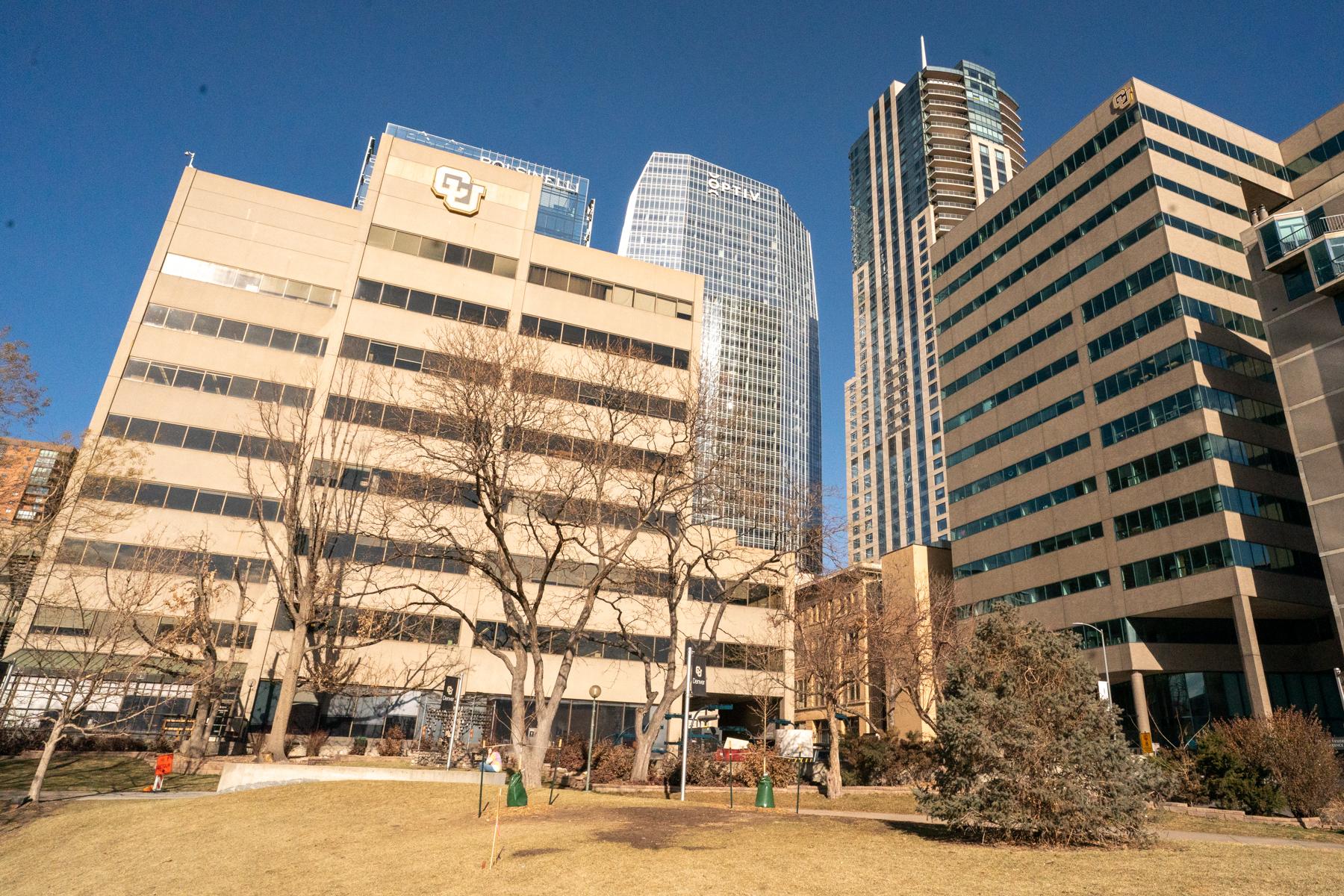
After living in her West Denver home for nine years, April Armijo and her five kids have enjoyed the luxury of central cooling for the first time over the last two weeks.
“Especially when we cooked dinner, it was really hot in the kitchen,” Armijo said from her front porch. “Now it’s nice. Nice and cool.”
Armijo lives in Dispersed West Public Housing, a 17-unit complex owned and operated by the Denver Housing Authority. Until recently, the residents relied on small window air conditioning units, which Armijo said weren’t powerful enough to cool her upstairs bedroom during the city’s increasingly hot summers. She often slept on the lower level just to avoid the heat.
The homes, however, are the site of Denver’s first attempt to fully electrify a multifamily public housing complex, which came with the extra benefit of central air conditioning.
On Thursday, local officials and energy affordability advocates packed the front lawn to announce the completion of the $661,000 project, primarily paid for by Xcel Energy and Denver’s Office of Climate Action, Sustainability and Resiliency. A sales tax approved by Denver voters in 2020 funds the climate office.
Joshua Crawley, the chief operating officer of the Denver Housing Authority, said his organization has built all-electric housing from the ground up in the past, but this project marks the first time it has retrofitted existing homes to remove all natural gas appliances. Even the gas utility meters behind each unit have been capped and slated for removal.
“We're excited to eliminate the use of natural gas at this site and even more excited to provide central air conditioning to these homes for the first time,” Crawley said.
Climate advocates favor projects like these to eliminate natural gas from existing buildings. Besides removing indoor air pollution sources like gas stoves, electrification also allows buildings to take full advantage of a grid increasingly powered by zero-carbon electricity sources like wind and solar.
What’s held up those efforts are concerns about reliability and affordability. A study published by the National Renewable Energy Laboratory earlier this year found most homes would see a drop in energy bills by using heat pumps, especially if they rely on energy sources like fuel oil or comparatively inefficient electric resistance heaters.
It’s more complicated if a home relies on natural gas. The authors found most high-end, efficient heat pumps would help families lower their energy bills, but those machines tend to come with higher upfront costs.
Xcel Energy, Colorado’s largest utility, has also expressed concerns about the capacity of the grid to handle a rapid shift to heat pumps. If more households rely on electricity to stay warm, it could result in sharp spikes in electricity demand on cold days.
To mitigate those spikes, the utility has suggested many homes could keep gas furnaces to back up all-electric heat pumps. Meanwhile, climate advocates and heat pump technicians maintain the technology can effectively keep residents warm in Colorado’s climate without crashing power systems.
At the press conference, Grace Lopez Ramirez, a senior area manager for Xcel Energy, said one goal of the new project is to study how the full electrification of the housing complex will impact the grid and energy prices.
“We'll see. We're hopeful this project will provide the insights needed for how customers can collectively reduce greenhouse gas emissions,” Lopez Ramirez said.








